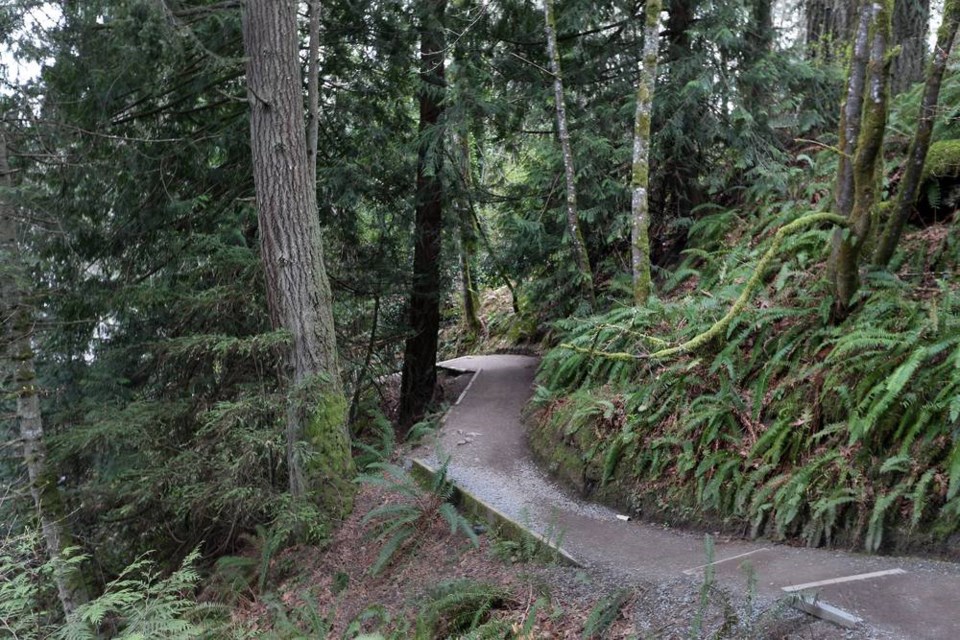“The coronavirus pandemic is only one of the population-level crises we are facing. Human activity over the last century has generated another global crisis that both threatens far more devastating and widespread damage and will be far more difficult than COVID-19 to turn around.
“Climate change and its effects — increased wildfire, spread of invasive species, failed crops, rising risks of disease, and so on — also require all of us to put aside our individual needs and convenience and prioritize the greater good. Yet we can’t make the effort to avoid trampling a well-signed sensitive area in a local park.
“Our inability as individuals to stay on-trail to protect the very values that draw us to our treasured local green spaces in the first place doesn’t bode well for our ability to work together to solve the difficult challenges ahead.”
These were the final paragraphs of a column I wrote last summer. The piece talked about degradation of local parks since the pandemic’s start due to increased use.
Among the readers who emailed me in response, some agreed with my observations and reflections. Other readers who emailed me took exception. Some even rationalized why they treat our public parks like their own personal plant-supply centres, dog runs and adventure camps.
The rationalizations reinforced my point — that our collective inability as individuals to take simple measures to protect the values that draw us to our parks doesn’t bode well for solving much more difficult challenges ahead.
However, perhaps those readers didn’t read to the end of the column.
To ensure readers don’t miss it today, I’ve started with the end.
The beginning
Being active outdoors is the new big diversion, recommended and approved by regular doctors and public-health officials alike.
The wider-spreading uptake of The Outdoors among and throughout the community is escalating already-longstanding conflicts. More people using parks means more litter, which is not only unpleasant for everyone and costs taxpayers but puts key park values at risk.
Increased foraging and off-trail wandering in natural-area parks conflict with efforts to protect those ever-shrinking, increasingly stressed natural wildlands. The dogs-off-leash versus dogs-on-leash issue is only exacerbated as more people take to trails and beaches. The list goes on.
It’s all so predictable.
The most recent episode takes place around mountain biking. It was brought to a head recently when CRD Parks approved mountain-biking guidelines that pleased nobody.
Mountain bikers want more mountain-biking trails in the region. More people are taking up the activity, existing trails are crowded and overused, and some trails are being lost to the Hartland dump expansion.
Environmental advocates, local residents and other park users oppose allowing more mountain-bike access in some areas, pointing to already intense pressures on the region’s wilderness parks. They cite the accelerating degradation of wildlands and other issues around current and future park stewardship.
Each position is based on valid, if differing, needs and ideas about what our parklands exist for. Given the ever-shrinking amount of wildlands in the region and the perpetually insufficient resources available for maintenance and restoration of sensitive areas, designating some park areas that are neither wilderness nor ecologically sensitive for more bike trails, while protecting areas with high ecological values, would be reasonable.
Some in the mountain-biking community have spent years building relationships with parks management to be represented on the parks agenda. They’ve worked to educate their own community about responsible mountain biking and trail ethics.
Yet all that has been jeopardized by a few mavericks who took matters into their own capable hands and short-sighted noggins to build unauthorized trails in Mount Work Park, a protected wilderness area. Some have used the insufficient number of official trails in the region to rationalize the illegal construction.
You needn’t be anti-mountain bike to see such unsanctioned actions merely reinforce some unflattering conceptions about mountain biking and mountain bikers that others may have. These actions and the attitudes leading to them erode trust between the mountain-bike community and other park stakeholders, risking the work and goodwill of decades.
This problem is our problem in this community. It addresses community values, needs and attitudes. In the great scheme of things, it’s a small issue, but it’s emblematic.
I direct you to circle back up to the end of the column at the beginning.
keiran_monique@rocketmail.com



